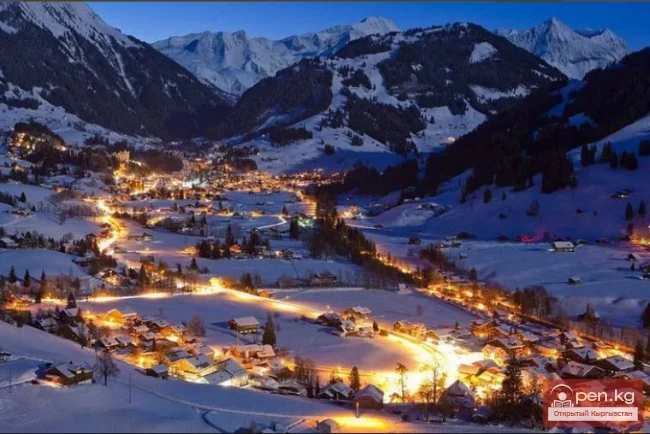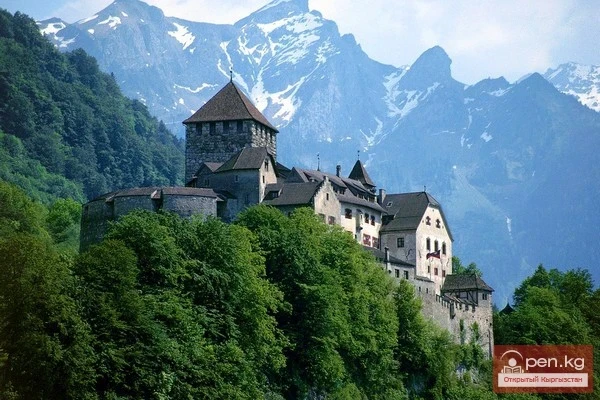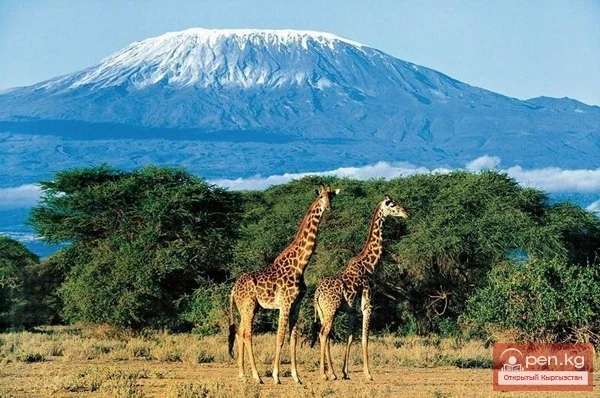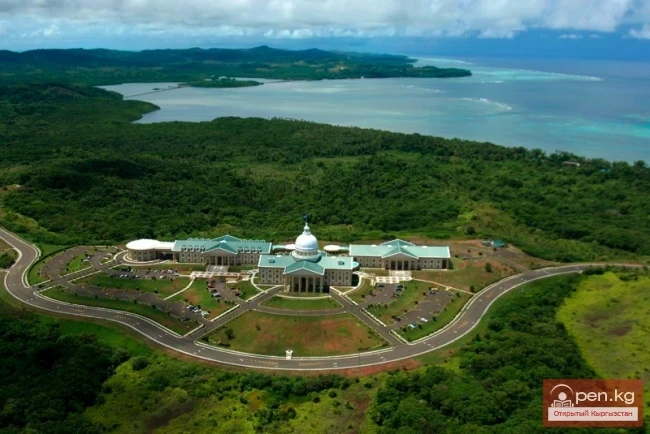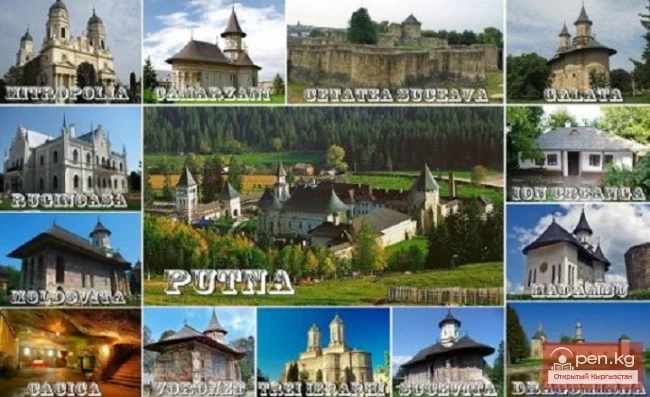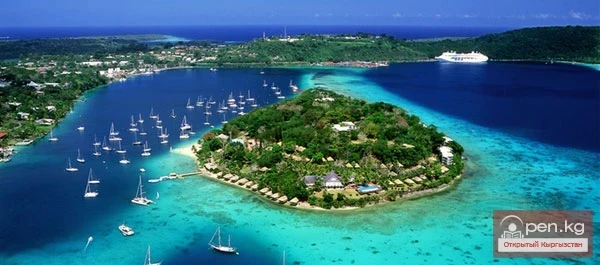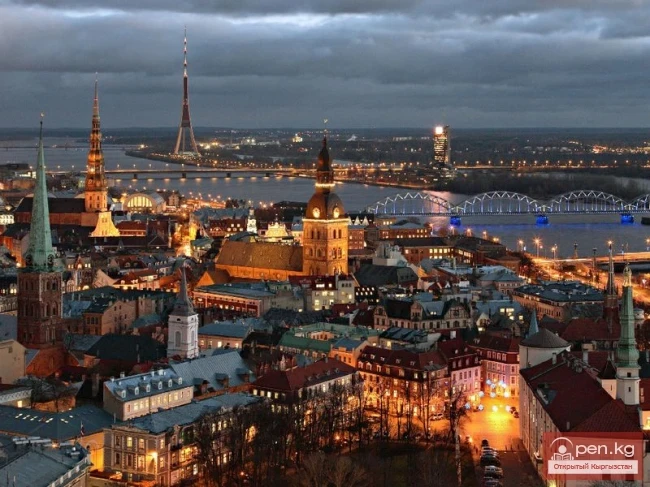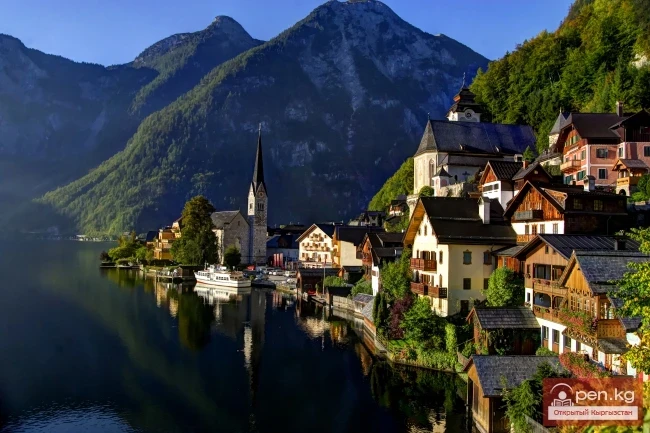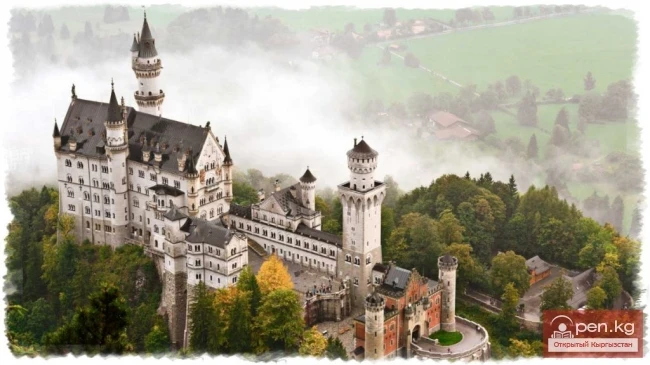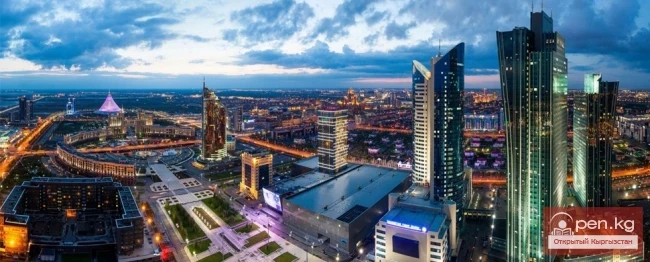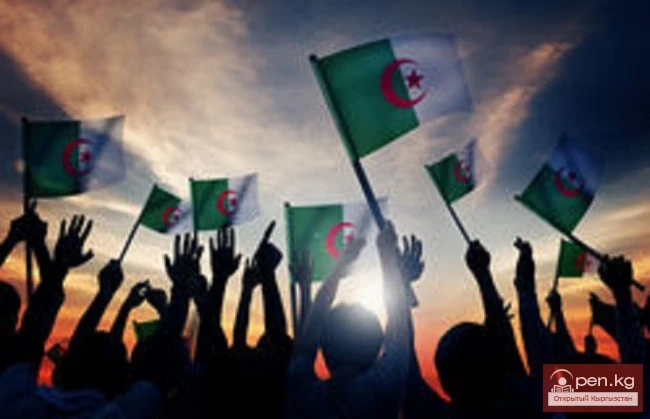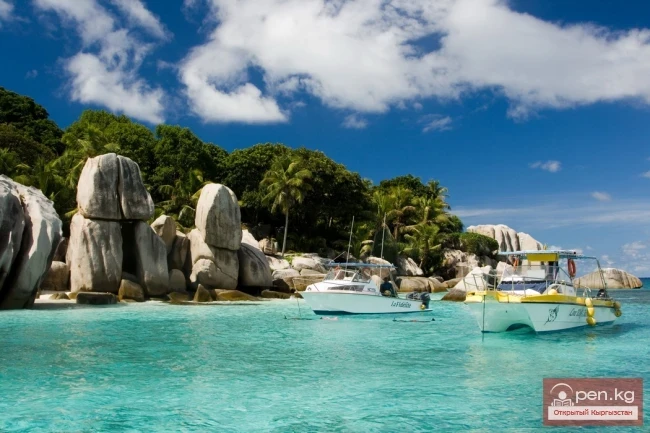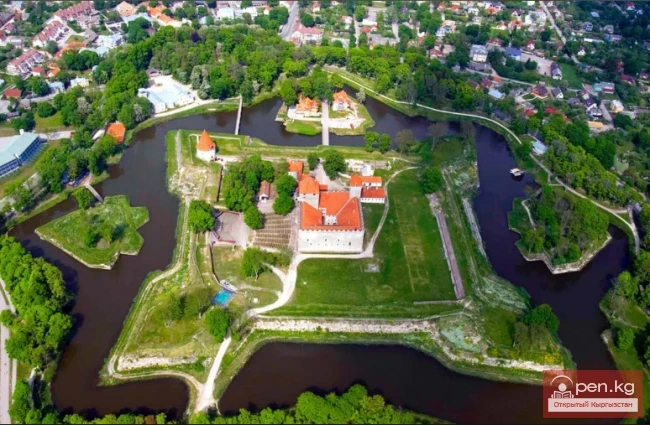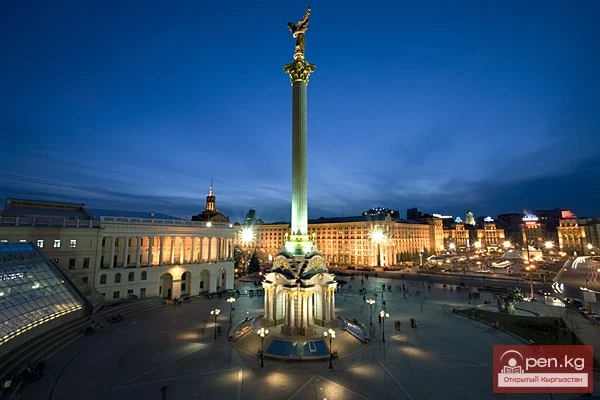SWITZERLAND. Swiss Confederation
A state in Central Europe. Area - A\,B thousand km². The federal city (location of the government and parliament of the Confederation) is Bern (127 thousand), the largest cities (in thousands): Zurich (366), Geneva (178), Basel (165), Lausanne (117). Administratively, it consists of 26 cantons. Population - 1.1 million (2004), 85% of whom live in cities and urban-type settlements, including over 19% (1.3 million) foreigners. Official languages - German (dialect "Schweizerdeutsch", 65% of the population), French (19%), Italian (6.5%), and Romansh (0.9%, the number of speakers is gradually decreasing). The dominant religious denominations are Roman Catholic (44% of believers) and Protestant (37%); adherents of other Christian denominations make up 2.1%, Islam - 4.3%, Judaism - 0.3%; 11% of the country's residents do not identify with any denomination. The currency is the Swiss franc = 100 centimes.
It has diplomatic relations with the Russian Federation (relations between Switzerland and the RSFSR existed from May to November 1918, then were restored with the USSR on March 18, 1946).
The national holiday is August 1 - the Day of the Foundation of the Confederation (1291).
Switzerland is a federal parliamentary republic. Each canton has its own constitution, parliament, and government. A new constitution came into force on January 1, 2000, adopted in a referendum on April 18, 1999, replacing the constitution of 1874.
Legislative power belongs to the Federal Assembly, consisting of two equal chambers: the National Council (200 deputies) and the Council of Cantons (46 deputies). Men and women who are 18 years old have the right to vote in federal parliamentary elections. The National Council is elected by direct secret ballot using a proportional system for a term of 4 years, while the Council of Cantons (2 deputies from each canton and 1 from each half-canton) is elected by a majoritarian system (except for the canton of Jura). In some cantons, deputies to the Council of Cantons are elected at sessions of the cantonal parliaments, while in others - by direct voting of the population. The chairpersons of the chambers are elected annually. The last parliamentary elections took place on October 19, 2003.
The collective head of state and the highest executive body is the Federal Council (government), which consists of 7 federal councilors elected by the Federal Assembly for 4 years (according to the constitution, all 7 federal councilors are equal in rights and make decisions strictly on a collegial basis). Each of them heads one of the seven federal departments (ministries) and represents the Federal Council as a whole during official visits abroad.
The head of state and government is the President of the Confederation, elected by parliament from among the members of the government for a term of one year based on the principle of rotation, who presides over the meetings of the Federal Council and primarily performs representative functions. The President for 2006 is Moritz Leuenberger (SP).
Switzerland has over 20 registered political parties at the national level (of which 13 are represented in the federal parliament). The Federal Council is formed based on a coalition of the 4 leading parties in the country: the Radical Democratic Party of Switzerland (RDPS), representing the interests of large industrial and financial capital (founded in 1894, about 150,000 members, has 36 seats in the National Council and 14 seats in the Council of Cantons, chairperson - K. Langenberger); the Christian Democratic Party of Switzerland (CDPS) - represents the interests of large and medium-sized entrepreneurs, employees, especially in cantons with a Catholic population (founded in 1912, about 80,000 members, has 28 seats in the National Council and 8 seats in the Council of Cantons, chairperson - D. Leuthard); the Social Democratic Party of Switzerland (SDPS) - has been active since 1888, is part of the Socialist International, and represents the interests of wage earners (about 70,000 members, represented by 52 deputies in the National Council and 9 deputies in the Council of Cantons, chairperson - U. Koch); and the Democratic Union of the Center (DUC; another name - Swiss People's Party, SVP) - founded in 1971, represents the interests of small and medium-sized entrepreneurs (approximately 50,000 members, 55 seats in the National Council and 8 seats in the Council of Cantons, chairperson - U. Maurer). The Liberal Party (founded in 1961), uniting large entrepreneurs from French-speaking cantons, is also represented in the federal parliament; the Union of Independents (founded in 1935) - a right-wing petty-bourgeois party; the Evangelical People's Party, Swiss Democrats, Motorists' Party, Green Party, Ticino League, Swiss Labor Party.
The internal political situation in the country is characterized by stability in the distribution of political forces. The grouping of RDPS, CDPS, SDPS, and SVP has been in power since 1953 and holds a stable majority of parliamentary mandates in the national (80%) and cantonal parliaments.
The influence of the trade union movement in the country has noticeably decreased compared to previous decades.
Trade unions unite about 40% of workers. Workers and employees with social-democratic beliefs belong to the Swiss Trade Union Federation (founded in 1880, uniting 15 sectoral trade unions), radicals belong to the Swiss Union of Free Workers, and representatives of Christian parties belong to the National Christian Trade Union Federation.
The history of the country begins in 1291 when the cantons of Uri, Unterwalden, and Schwyz formed a "union for eternal times" to fight against the Austrian Habsburgs, who were trying to establish control over the lands located at the approaches to the St. Gotthard Pass - the shortest transit land route of medieval Europe from southern Europe to its northern and western parts, and defended their independence. The historical name of the country comes from the canton of Schwyz. Later, neighboring territories with populations speaking German, French, Italian, and Romansh were voluntarily or forcibly annexed to the union. In 1499, Switzerland effectively became independent. In 1814-15, the Vienna Congress of European states determined borders close to the modern ones. In 1848, a constitution was adopted, transforming Switzerland from a union of cantons into a federal state, which was confirmed in a new edition of the country's fundamental law in 1874.
The foreign policy doctrine of the multinational Swiss state has become "perpetual neutrality," recognized and guaranteed by the Vienna Congress in 1815 and confirmed by the Versailles Treaty in 1919.
Switzerland firmly adheres to a policy of neutrality and does not intend to deviate from it in the future, including in its capacity as a member of the UN. Participation in the creation of a collective security system, solidarity actions in carrying out multilateral actions through the UN and OSCE, and possible future accession to the European Union are considered compatible with its neutral status. However, joining any military alliance is still excluded.
Switzerland has been a member of the UN since 2002, actively cooperating with many of its specialized agencies; it is a member of the OSCE; participates (since 1963) in the Council of Europe, being one of its founding states; and works within the framework of the OECD (since 1960) and EFTA (since 1960).
Accession to the European Union has been declared a strategic goal of the Swiss government, although European integration and relations with the EU remain a subject of intense discussion in the country (in a referendum in March 2001, more than 76% of the population opposed starting negotiations for EU accession). Switzerland's relations with the European Union in practical areas are regulated by so-called "sectoral agreements" (a total of 17), concluded in June 1999 and October 2004.
Switzerland is a highly developed industrial state with an intensive agricultural sector. It ranks among the top in the world in terms of living standards and income per capita. It specializes in the production of high-quality, expensive, and knowledge-intensive products. It holds leading positions in the fields of biochemistry, precision machine engineering, and computerization. Large transnational monopolies dominate the economic life of the country.
One of the priority areas of Switzerland's scientific and technological policy is ensuring the competitiveness of national industry in the foreign market by developing high technologies. Five main areas for further development of the scientific and technological potential have been identified: information and communication technologies, measurement technology and management organization, new materials, life processes and human health, and environmental protection.
The high level of specialization and quality of products allows Switzerland to successfully compete in global markets, maintain economic stability, and ensure high employment levels. However, since the early 1990s, there has been a decline in the country's economic development. In 2002, GDP growth stopped, and in 2003, negative GDP growth rates were recorded at -0.4%. Since 2001, the state budget has been running a deficit (0.66% in 2003).
In 2004, the absolute value of GDP amounted to 431 billion Swiss francs (+1.8% compared to 2003), with inflation at 0.9%. The number of unemployed was 148 thousand people (3.9% of the working-age population). The working-age population is 4.2 million, of which 70.1% are employed in services, trade, education, and management, 25.8% in industry, and 4.1% in agriculture and forestry.
Swiss industry accounts for about 40% of the country's GDP. Its characteristic features include a high dependence on external sources of raw materials and a focus on exporting finished products. The main industries are metalworking, machine engineering, and instrument engineering (70% of machine engineering and instrument engineering products are exported, 80% of machine tool products, which accounts for 10% of the world's machine tool exports and 18% of textile equipment), production of vehicles and computer technology, chemical, textile (over 50% of the textile produced in the country is exported), and food industries, printing, biochemistry, pharmaceuticals, and watch production (over 90% of watch and pharmaceutical products are intended for export, accounting for up to 15% of medication exports and half of watch exports from Western countries).
Approximately 60 billion kWh of electricity is produced annually, of which 37% comes from nuclear power plants. 620 million m³ of natural gas is imported.
The share of agriculture in GDP is about 5%, employing 4% of the economically active population. The agricultural sector meets 60% of the country's demand for agricultural products. The main sector is animal husbandry (75% of the value of agricultural production).
The length of railways is 5 thousand km (of which 2.9 thousand km belong to the state), and paved roads total 7.1 thousand km. The vehicle fleet consists of 4.5 million cars, of which over 2.8 million are passenger cars. A 16.9 km long car tunnel operates under the St. Gotthard Pass.
Switzerland is one of the important financial and banking centers in the world. It ranks third in currency trading (after New York and London). Swiss banks control 40% of the global asset management market. The banking sector produces 10% of GDP and contributes 11% of all tax revenues to the state budget.
The national currency - the Swiss franc - is among the most stable and is used as one of the reserve currencies in international settlements. The gold reserves of the Swiss National Bank amount to 11.9 billion Swiss francs.
Switzerland is the fourth largest (after the USA, Japan, and Germany) exporter of capital, mainly to the 10 leading industrialized countries (the top three being the USA, Germany, and France). The total volume of Swiss assets abroad exceeds 650 billion Swiss francs. Approximately 3.5 million people are employed in enterprises controlled by Swiss capital in other countries. Investments abroad and banking operations with foreign capital within the country (more than 600 banks operate) allow compensating for the excess of imports over exports (oil and petroleum products, raw materials, food, equipment, etc. are imported).
Switzerland accounts for about 2% of the world's foreign trade turnover. Foreign economic relations are mainly oriented towards Western Europe and North America (over 80% of foreign trade turnover, including 57% of exports and 75% of imports - to EU countries); Germany plays a leading role. The share of Central and Eastern European countries (including Russia) in this regard does not exceed 2.5%.
Foreign tourism is an important source of state and private income. Several million tourists visit Switzerland annually.
The standard of living in Switzerland is very high. In terms of income per capita, it ranks first among OECD member countries (approximately 3,700 Swiss francs per month).
Cantonal universities operate in Basel, Zurich, Bern, Geneva, Lausanne, Lugano, St. Gallen, Fribourg, and Neuchâtel. Zurich and Lausanne have higher technical schools, and St. Gallen has a higher economic school. A significant portion of the students are foreigners.
Switzerland ranks among the top countries in the world in terms of the number of periodicals per capita. About 300 newspapers are published with a total circulation of about 3.5 million copies. Among the largest German-language newspapers are: "Blick" (382 thousand copies), "Tages-Anzeiger Zurich" (260 thousand), "Berner Zeitung" (122 thousand), "Neue Zürcher Zeitung" (142 thousand); among French-language newspapers, the leaders are "24 Heures" (97 thousand) and "Tribune de Genève" (65 thousand).
The Swiss Telegraph Agency (SDA; ATS) was founded in 1894, located in Bern, and is a joint-stock company of the largest newspaper publishers.
Radio and television broadcasting is conducted in German, French, and Italian (in the canton of Graubünden - also in Romansh) by the joint-stock company "Swiss Broadcasting Corporation," which is controlled by the government. Private television and radio broadcasting are also well developed.
